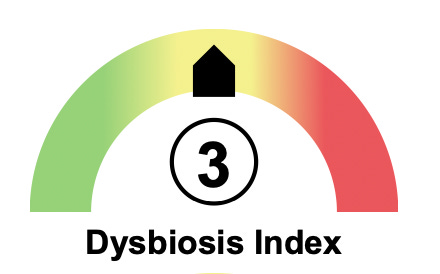What my microbiome results revealed about PCOS
What do they show?
Hi,
Last week, we explored the connection between our gut and PCOS. Today, I want to share my microbiome with you. Don’t worry—I am not about to share a picture of my poo, but a deep dive into the bacteria I have in my gut.
I used the GI360 test, which I think is the most advanced gut microbiome test on the market.
According to them, my dysbiosis (imbalance of the bacteria in my gut) is at 3, which is not too bad but not great. My Diversity score sits at 4, which is partially good news.
Let’s dig deeper and see what is going on. Let’s start with the good news and move on to some bad news.
If you are interested in a comprehensive gut microbiome test, I can help you interpret it and plan how to bring your gut back to balance. Tests like this can detect viruses, yeast, and pathogens and understand if you digest fats, protein, and carbohydrates. They can also show how you process estrogen and any indication of gut permeability (leaky gut). Ping me an email at francesca.abalasei@gmail.com, and we can book a free consultation.
The good news
My levels of Bifidobacterium and Lactobacillus - the "good guys" we always hear about - are sitting comfortably within reference ranges. This is quite encouraging because research shows these beneficial bacteria are often reduced for us.
Even better, my Faecalibacterium prausnitzii levels are normal. This bacteria is a superstar in producing butyrate, one of the most critical short-chain fatty acids for gut health. Studies consistently show this bacteria is often depleted in women with PCOS.
Speaking of butyrate, my short-chain fatty acid production is robust - sitting at the upper end of the reference range. This is fantastic because butyrate helps maintain our gut barrier, reduces inflammation, and supports insulin sensitivity. As we mentioned last week, SFCA helps keep our gut lining healthy and improves how our body handles blood sugar. It does this by helping your cells use energy more efficiently and supporting processes that stabilise blood sugar. The bacteria that produce these feed on fibre.
I do tend to eat a lot of fibre throughout the day.
The not-so-good News
However, my results also show some concerning patterns that align with what we see in PCOS research:
I have elevated levels of Klebsiella, Kluyvera, Pseudomonas, and Rhodococcus. These aren't necessarily "bad" bacteria, but they can contribute to inflammation and metabolic disturbances when they overgrow.








